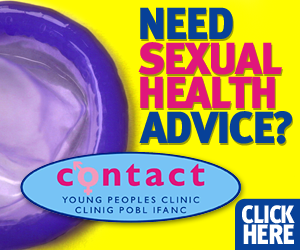Information » People in Your Life » Being a Parent » Babies
In This Section
Babies
Becoming a parent for the first time can be both scary and exciting. It means a whole change in lifestyle and a new responsibility.
New mums in particular can have emotional ups and downs in the first few weeks of the birth because their sleeping pattern will be disrupted and their hormones are still settling from the pregnancy. This is completely normal.
Try and get as much help as you can from other people, whether it is your partner, your family and friends or your health care worker.
The birth
- Giving birth can be an emotional, tiring and sometimes scary experience but having someone with you can help
- You could consider having your partner, a parent or a friend along with the medical professionals to help you through it
- You can choose to have your baby in a hospital maternity unit, a birthing centre or even at home, but take the advice of your doctor for what is best for the health of you and your baby before deciding
- Labour begins as a hormonal response, triggered by the baby, which prompts the uterus to start contracting to open up the cervix for the baby to pass through. These are known as contractions
- Your water may break as the contractions begin or later on
- As the contractions get closer and closer together and last longer, the cervix is opening wider and wider
- Once it is wide enough and you are fully dilated (10cm), the baby’s head will begin its descent
- You will then feel a very strong urge to push. If you have had an epidural, you might not feel this urge and the midwife will advise you when to push
- Sometimes the midwife will ask you to stop pushing and breathe through the urge. This is to prevent the baby coming out too quickly and tearing you
- The baby’s head will appear first, known as crowning, and the rest of the baby will be born after a few more contractions
- Holding your baby for the first time will be an unforgettable experience so look forward to it
Registering the birth
Within 42 days of the birth, you must register the birth and the baby's name at your local office of the Registrar of Births, Deaths and Marriages.
What to expect as a new mum
Learning to be a mother can be tough so go easy on yourself, no-one is perfect.
The baby will consume most of your time so make sure you get support from your partner and your family.
- You are not expected to know what to do right away, nobody does - being a being a mum takes practice
- A midwife will visit you at home within ten days of the birth and then a health visitor will take over, usually calling around at least once. After that, you will have access to the health worker at the baby clinic or by phone. They are there to help you so don’t be afraid to ask them any questions. They aren’t there to judge you
- Your baby may not sleep very well in the first few weeks so it is a good idea to try and sleep when the baby sleeps if that’s possible or ask your partner or a trusted family member to watch the baby while you rest
- Friends and family will want to visit the baby but don’t feel you have to play host. If you’d prefer people didn’t just drop in, say so and make arrangements for times that suit you. Also don’t be afraid to say you are too tired for visitors
Breast-feeding
The decision of whether to breast-feed or bottle-feed your baby is entirely yours.
Breast milk is nature’s first choice for the baby because it contains all the nutrients a baby needs for its first six months and has a number of health benefits for you and the baby, including:
- Antibodies that help protect against infections - the antibodies you make in response to germs appear in your milk
- Breastfeeding helps mobilise fat stores and this helps with post-birth weight loss
- Breastfeeding can help contract the uterus post birth
- Research shows breastfed babies are also at lower risk of conditions such as eczema, asthma and diabetes
- Breast milk is convenient - it needs no preparation, and it's free! Breast milk is always the right temperature
- Your mid wife or health care worker can help you start breast-feeding from the baby’s first day. They will also help you through any problems
- It can take time to perfect but together you and your baby can get it mastered
Some mothers cannot or choose not to breast-feed their baby and use a milk formula enriched with nutrients fed through a bottle instead.
- Bottle-feeding is less convenient than breast-feeding as it requires heating to the right temperature and sterilising equipment each time
- Never feed cow’s milk, goats milk, condensed milk, dried or evaporated milk to a baby under 12 months old
- You can start feeding your baby solid foods from four to six months, but every baby is individual
- If you are worried about feeding your baby, please talk to your midwife or health care worker for advice
Postnatal depression
Most new mothers will suffer from the ‘baby blues´ at some point after the birth. This is usually linked to a lack of sleep and hormone surges. You may feel teary and emotional and this is perfectly normal in the first few days after the birth.
However, if the ‘baby blues´ don’t lift, you might be suffering from postnatal depression.
Symptoms include:
- You feel incapable of being a mother
- You feel as if you need to put on a front to the world
- You're tearful for no obvious reason, very frequently
- You long for sleep, yet no matter how much sleep you get you don’t feel refreshed in the morning
- You find it hard to get to sleep
- You sometimes lose your sense of time - you can't tell the difference between ten minutes and two hours
- You find it hard to see the funny side of life/lose your sense of humour
If you think you or your partner is suffering from postnatal depression, talk to your midwife or GP.
What to expect as a new dad
Becoming a dad is an important stage in any man’s life and it can be a difficult role to settle into.
- New dads sometimes feel left out of the baby’s life at first
- The mum may be breast-feeding and you may feel you are not as close to the baby as she is
- If you want to create a bigger bond, get involved. Spend time holding and talking to the baby, giving him/her a bath and change the nappies. It will be a good time for the mum to rest too
- Be supportive of the mum and let her know how well she is doing. Try and do as much of the household chores, cooking and shopping as you can. Get as much time off work as you can as well. Remember, you are a team in raising the baby so be there for her as much as you can
Your baby’s health
Most babies will suffer sniffles or minor colds in their first few months and this is usually nothing to worry about.
However, if your baby is suffering from any of the following symptoms, call a doctor immediately:
- They are off their feed - less than half their normal intake in the past 24 hours
- There is persistent vomiting
- The baby develops a fast breathing rate, especially if it is noisy or comes on suddenly
- There are less than four wet nappies in 24 hours
- They are irritable
- There is blood in the bowel motions or urine
- The baby has a persistently unusual cry
- There are listless or floppy
- They have a skin rash
Cot death
Cot death is the sudden and unexplained death of a baby for no obvious reason.
Most cot deaths occur when the baby is under six months and no single cause has been identified.
There is no way of preventing cot death, but you can reduce the risks by:
- Placing your baby on their back to sleep
- Not smoking during pregnancy (this applies to both parents)
- Not allowing people to smoke in the same room as your baby
- Not allowing your baby to get too hot
- Keeping your baby's head uncovered. Their feet should be to the foot of the cot to stop them wriggling down under the covers
- Not falling asleep with your baby on the sofa
- Not sharing your bed with your baby if you or your partner smoke, have been drinking alcohol, are taking medication or drugs that causes drowsiness or are excessively tired
- Putting your baby's cot in your bedroom for the first six months
- Seven babies die of cot death in the UK each week. It is the leading cause of death in babies under one month old. Ask your GP for more advice
Immunisation
Immunisation is the safest way to protect your baby from serious infectious diseases that in some cases can be life threatening.
There are a series of injections that take place regularly during the first year of babies life and then further injections at a age 3-4 years old. Later on when your child is 12 – 18 years old there are another set of injections that will protect your child.
For a full list of immunisations, the number of injections necessary and at what age they should be carried out please go to http://www.nhs.uk/Conditions/vaccinations/Pages/vaccination-schedule-age-checklist.aspx
All immunisations are free. Talk to your GP if you have any concerns or want advice.








